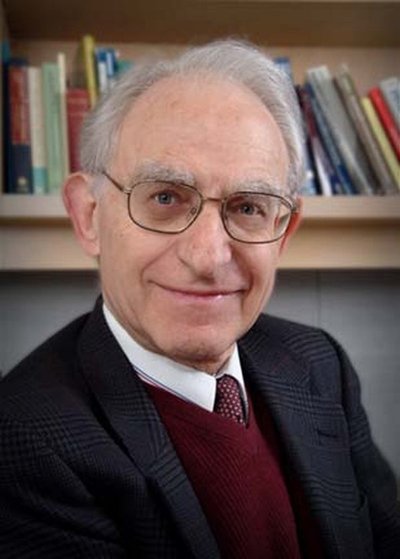April 9, 2009
Motulsky honored for lifetime of pioneering work in medical genetics
When Arno Motulsky was first recruited to the UW in 1953 as a hematology instructor, his research in genetic blood diseases attracted him to the emerging broader field of medical genetics. Robert Williams, then chair of the Department of Medicine, encouraged Motulsky to establish a Division of Medical Genetics at the UW.
Since the division’s formation in 1957, Motulsky has enjoyed an esteemed career in medical genetics that has focused on a number of areas beyond hematology, including the role of genetic variation in response to drugs (pharmacogenetics); the genetics of cholesterol in heart disease; the relationship between genetics and susceptibility to disease from infectious and other environmental agents; and the molecular genetics of human color vision.
In 1959, Motulsky helped to establish a genetics clinic in the new University Hospital, now known as University of Washington Medical Center. Medical genetics as an emerging specialty had few models in those days, and Motulsky felt that the full application of genetics to medicine required involvement by numerous clinical specialties. So he recruited experts in hematology, neurology, dermatology, ophthalmology, and in the new field of genetic counseling.
He also brought together basic scientists in cytogenetics, biochemical and molecular genetics, somatic cell genetics, statistics and population genetics. Because of the strong research, clinical and educational programs, the division soon gained a major national and international reputation, attracting postdoctoral trainees from the U.S. and abroad who were eager to learn about medical genetics.
In recognition of his pioneering work and illustrious career in medical genetics that has spanned more than five decades, Motulsky was honored March 26 with the inaugural Lifetime Achievement Award presented by the American College of Medical Genetics at their annual meeting. The award is the foundation’s highest honor and recognizes an individual who has demonstrated outstanding leadership in the field of medical genetics — a researcher and educator who exemplifies the highest standards of the profession over a lifetime.
“Dr. Motulsky epitomizes the highest values of our profession,” said R. Rodney Howell, president of the American College of Medical Genetics Foundation. “His tireless efforts to mentor, teach, research and guide have made a lasting and global impact on our field, and he has served as a role model for young people entering the profession over many decades. He has trained and inspired a tremendous number of geneticists.”
As the very first recipient of this new award, Motulsky said he is “truly honored and very pleased.” His early teaching at the UW in medical genetics began with what he described as “bootleg lectures,” which he presented to medical students as a way “to help them understand the clinical utility of genetics in medicine.”
In the 52 years since the division’s founding, Motulsky has made groundbreaking advances, leading to his reputation today as a father of both medical genetics and pharmacogenetics.
An elected member to the National Academy of Science, Institute of Medicine, American Academy of Arts and Sciences, and the American Philosophical Society, Motulsky is the recipient of numerous awards throughout his distinguished career. He has authored more than 400 articles and trained more than 70 post-doctoral students in genetics, including Joseph Goldstein, who later received the Nobel Prize for his work in cholesterol metabolism — work that began while he studied with Motulsky.
One of Motulsky’s first fellows in the early 1960s, Charles Epstein, a well known geneticist at the University of California, San Francisco, said Motulsky’s commitment as an editor, teacher, lecturer, researcher and author “enabled him to set the tone for how clinical genetics is now practiced. He trained an entire generation of geneticists and always set a fine example for students,” Epstein said. “He showed them how to listen and to use what resources and knowledge they had to move forward on behalf of their patients. He is still remarkably active and is as much intellectually engaged in genetics now as he ever was. No one has a broader grasp of human and medical genetics today.”

